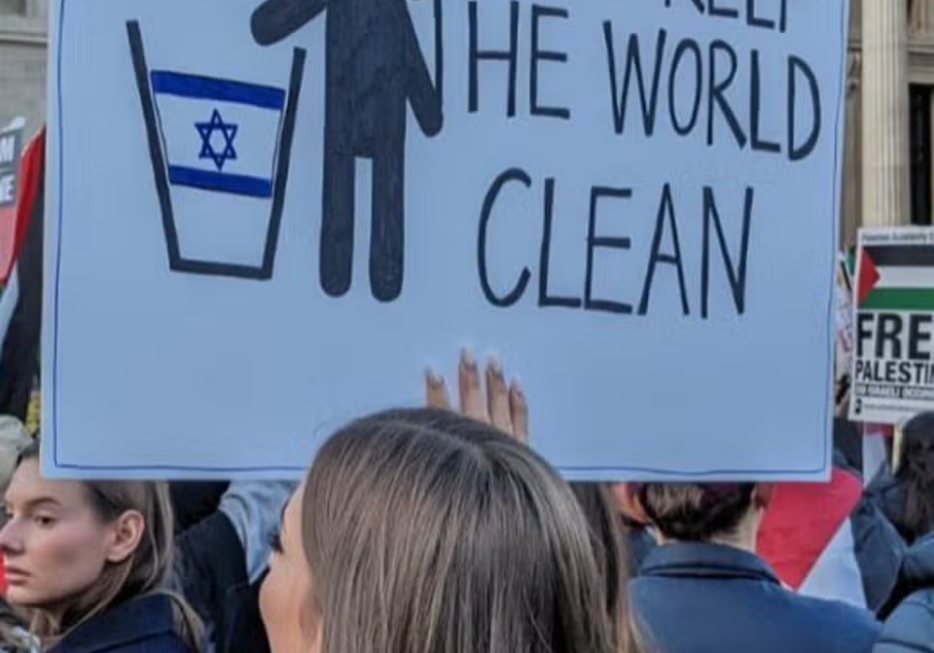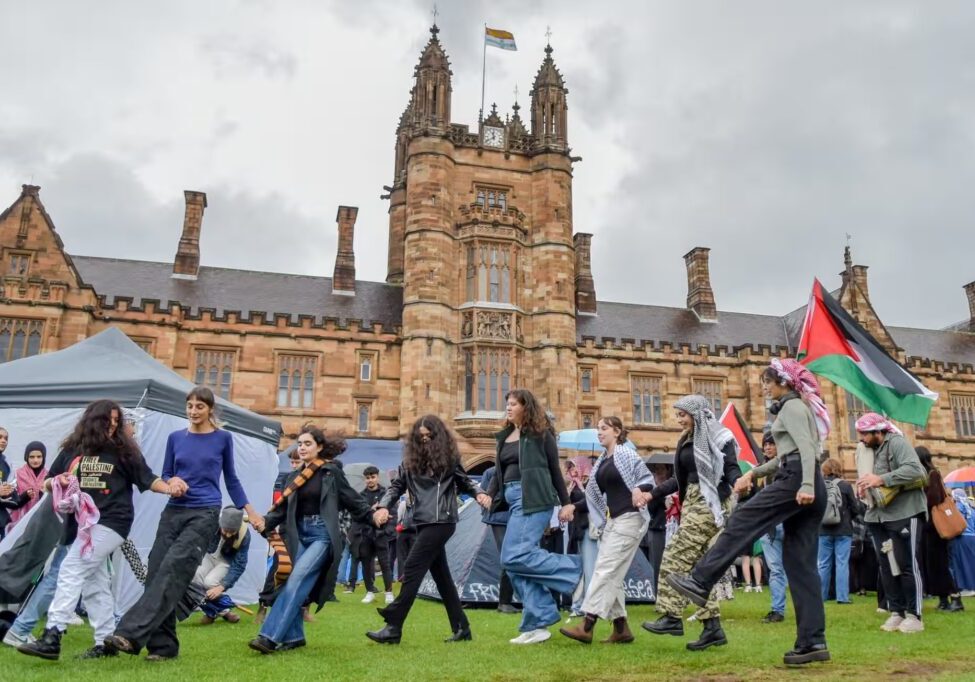Australia/Israel Review
Scribblings: Going Green?
Jul 27, 2010 | Tzvi Fleischer
Tzvi Fleischer
Going Green?
While most pundits generally regard the outcome of the federal election as currently too close to call, there does seem to be one prediction on which most election analysts agree – the Australian Greens are likely to wind up controlling the balance of power in the Senate.
This will be worrying to many in the Australian Jewish community because not only does the Greens party’s membership base seem, on past form, susceptible to radical anti-Zionism, but some of the party’s official policies look strongly concerning – to say the least.
The Greens’ foreign policy platform calls for Australia’s withdrawal from ANZUS and a foreign policy of pacifism and reliance on the United Nations, but has little specific to say about most international trouble spots – except “Israel/Palestine.” On that, the Greens have a fairly detailed policy resolution adopted in 2006 and amended slightly in 2009.
The good news is that the resolution endorses an Israeli-Palestinian two-state resolution, and does not explicitly call for a legally-baseless Palestinian “right of return” which would destroy Israel demographically. The bad news is – well, almost everything else about it. The policy treats the regional conflict as solely about “the ongoing injustice that has been done to the Palestinian people” and “Israel’s ongoing occupation of the Palestinian territories” and it makes almost no demands of the Palestinian side other than generally urging that everyone should refrain from violence.
Most importantly, its path to a resolution is one-sided, naïve and destructive. A UN commission will come in, and while it will encourage negotiations between the sides, before they even begin, Israel must “immediately” start evacuating its troops and all settlers from all post-1967 territories and dismantle the West Bank separation barrier. In other words, Israel has to give the Palestinians almost everything they want without negotiations – and the Palestinian side will have no incentive to recognise Israel, agree to security arrangements Israel needs, or renounce the right of return. Ridiculously, the policy seems to assume that Israel will automatically get security and peace after unilaterally giving the Palestinians everything they want merely because the policy says they should.
The resolution further calls for sanctions to enforce the hypothetical UN commission’s demands – and since those demands are to be only against Israel, this is effectively a demand for sanctions against Israel. Further, the resolution demands “an end to Australian taxation deductions for donations to states, institutions and organisations engaged in violation of human rights including settlement activity.” In other words, it calls for an end to all tax deductability for donations benefitting Israel because it sponsors “settlement activity”, that terrible “human rights violation” – building houses.
This “Israel-Palestine” resolution is not the only element of Greens policy that may worry much of the Jewish community. The Greens’ education policy is quite hostile to non-government schools – especially those defined ambiguously as “the very wealthiest private schools”. Jewish day schools are of course a central institution of the Australian Jewish community – absolutely essential to its coherence, continuity and identity. According to the Greens, if they are considered among the “wealthiest private schools” – and some, while hardly wealthy, are well-endowed thanks to the generosity of community donors – they are to lose all government funding. Those not to be cut off entirely are to be cut back to 2003-2004 levels of funding (indexed for inflation) and forced to apply the exact same criteria as government schools for all hiring and firing of staff and admission and expulsion of students. This would appear to make it all but impossible for the Jewish day schools to maintain their current predominantly Jewish character, and would similarly affect many other Australian ethnic communities who have schools intended to preserve and promote their culture and heritage.
Of course, even if the Greens win the Senate balance of power, it is not clear how many of these problematic policies they will be able to implement. But, I, for one, would very much prefer not to find out.
Inside Gaza
Can I call readers’ attention to some important facts about the reality inside Gaza revealed in the New York Times’ article on Gaza by Ethan Bronner and Michael Slackman published on July 14, and republished in the Melbourne Age?
While the article outlined the genuinely difficult situation for residents of Gaza, it also revealed that the Israeli assertion that there is absolutely no humanitarian crisis in Gaza in terms of the basic needs of the population is correct.
Discussing conversations held with Gazans, the article said; “In fact, talk about food, and people here get angry because it implies that their struggle is over subsistence rather than quality of life. The issue is not hunger. It is idleness, uncertainty and despair.” In other words, Gazans have their basic needs met, just as Israel has always maintained – but they are suffering the normal consequences of the war their government insists on maintaining with Israel – uncertainty, lack of economic opportunities, boredom and fear. That’s unfortunate but the obvious solution is for Hamas to end the state of war.
Meanwhile, the story also made it clear what many Palestinians really want in their conflict with Israel – and it is not a two-state solution, nor even a “one-state solution”, it is ethnic cleansing. The article says, “Ask Gazans how to solve the Palestinian-Israeli conflict – two states? One state? – and the answer is mostly a reflexive call to drive Israel out… Ramzi, a public school teacher from the city of Rafah, said in a widely expressed sentiment. ‘All the land is ours. We should turn the Jews into refugees and then let the international community take care of them.’” Others are quoted saying essentially the same thing in a different way; “We believe in Israel’s right to exist, but not on the land of Palestine. In France or in Russia, but not in Palestine.” The one person quoted in the article who says he favours two-states is described as a “dying breed.”
Given this reality that what many Palestinians really want is to drive all Jews out, is it any wonder that Israeli efforts to negotiate a two-solution have been rebuffed, and that Israel is forced to take security measures which inconvenience Palestinians?
Tags: Australasia






